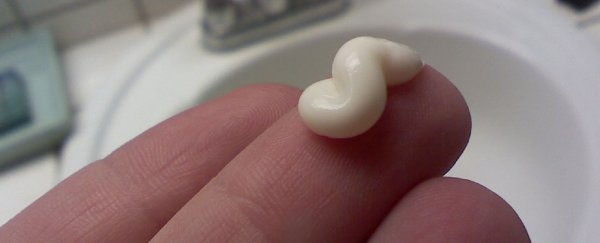Despite all the glitz and glamour on show in glossy magazine ads, it seems no amount of spin can make the claims of cosmetic advertising as scientifically grounded as the beauty industry would like us to believe. A new US study of magazine advertising in titles including Vogue, Glamour, and Marie Claire has found that the majority of cosmetic product claims appear to be bogus, with a significant portion even constituting "outright lies".
Researchers from Valdosta State University assessed 289 full-page cosmetic ads from the pages of seven magazines published in April 2013, categorising the claims made by the ads into various categories. These declarations included environmental claims (eg. "no testing on animals"), endorsement claims (eg. "recommended by dermatologists"), and scientific claims (eg. "clinically proven"). Ads were sourced from a number of product categories within female cosmetics, including make-up, facial skincare, body products, fragrances, and others.
Once categorised by the researchers, the cosmetic claims made by the advertisements were evaluated by a panel of judges and classified according to four scales of truthfulness: outright lie, omission, vague, and acceptable.
Although many of us are already inclined to think skeptically about the claims made by cosmetic manufacturers, the results from the study are still pretty mind-blowing. Ultimately, only 18 percent of the claims made in the ads were found to be acceptable by the judges, with more than 4 out of 5 product claims being seen as vague or untruthful.
In terms of scientific claims made by products, just 14 percent were seen as being acceptable. Environmental claims were accepted with less cynicism, although even then, only half such claims were found to be acceptable. Performance claims also fared poorly. About one in four performance-based claims were found to be acceptable, but almost as many were considered to be outright lies (23 percent).
While the notion that cosmetics advertisers are exaggerating or even fabricating their results to sell women overpriced health and beauty products won't come as a big surprise to anybody, the publicity attracted by the study could have an impact on the way beauty products are marketed and regulated.
"Deception not only undermines the credibility of advertising as a whole by making consumers defensive, but also produces damaging effects for the advertisers who are directly responsible for making the claims," one of the study's co-authors, told Sarah Knapton at The Telegraph. "The study makes it clear that marketers have a powerful self-interest in upholding the truth in cosmetics advertising… more regulations need to be developed."
The research is published in the Journal of Global Fashion Marketing.
